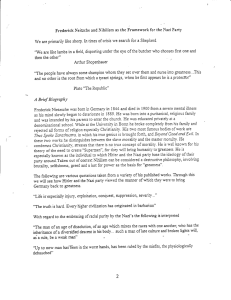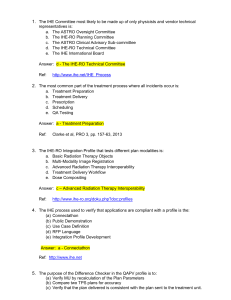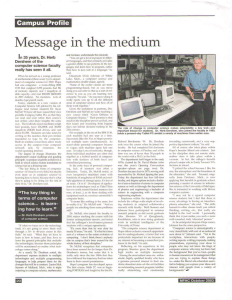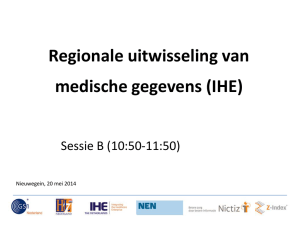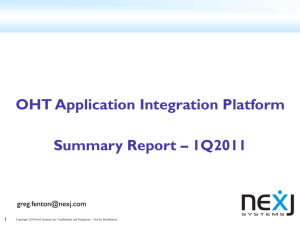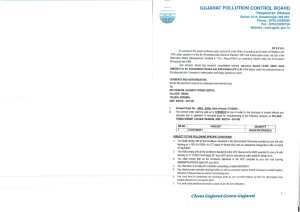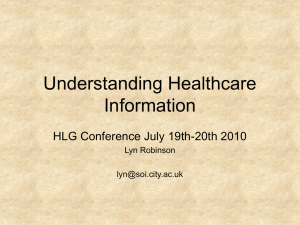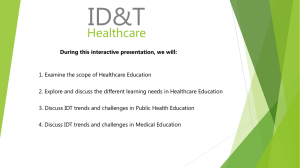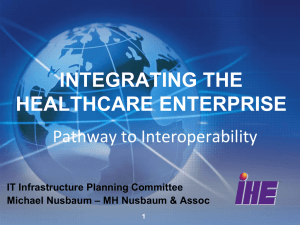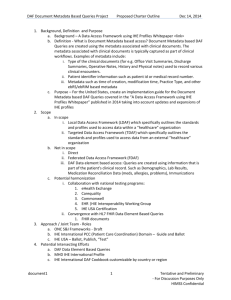State of the Art in Germany
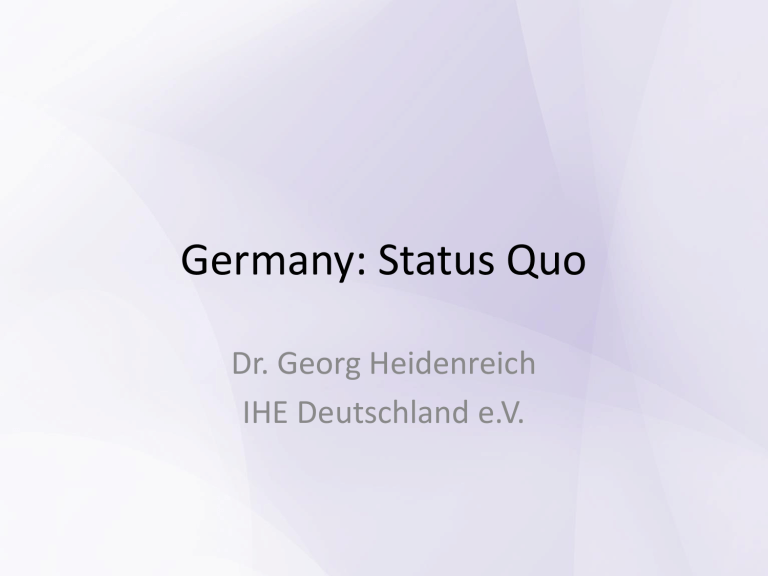
Germany: Status Quo
Dr. Georg Heidenreich
IHE Deutschland e.V.
Overview
• Many regional projects are underway, generally a high level of electronic communication in healthcare
• No nationally harmonised “center of gravity” for standards and certification
• SDOs (DIN, HL7, IHE, ...) use www.interoperabilitaetsforum.de
as the platform to develop and adapt specifications (4 meetings per year, free meals)
• National health insurance card has been rolled out (http://www.gematik.de/) including a secure electronic patient ID and cryptographic functions, and a photo of the patient
– No central services at the moment
– Projects scheduled for field trial 2014/2015: online patient demographics, digital signature for healthcare providers, central services, card terminals, secure access components ("connector")
– additional projects to follow: patient summary, secure point-to-point communication for providers, services for electronic case records (e.g. provider registry)
Status in Germany
• GEMATIK (http://www.gematik.de/) is authority for specification and approval of cards and “card terminals”
– approval requirements are specified by gematik: testing and certification (by BSI and others)
– approval and certification will further extend as the health card projects evolve, see above
– for details see: http://gematik.de/cms/de/zulassung/zulassungstart.jsp
• Many decision makers are involved in the German healthcare telematics infrastructure (TI) project
– Shareholders of gematik: healthcare payor and provider organizations
– Federal Ministry of Health, legal framework
– Payors: Social security / insurance providers issue cards for insured persons
– Hospitals / resident doctors / other healthcare providers: card-based ID and demographics used in reimbursement
–
• Through its membership in EHTEL/ELO and HL7, gematik corresponds with ANTILOPE
Regional / National Issues ?
• “national issues” or “national topics”: YES!!!
– language issues, DRG/ICD10, usability / process details, legal requirements, security methods, …
• Documentation in the national language
– The documentation of the approval requirements (testing and certification of cards and “card terminals”) at the moment is available in German language only
• What kind of support do you need from the project partners?
– GEMATIK has established detailed processes for approval of infrastructure components.
– It would be interesting to check if the GEMATIK processes and methods fit into the ANTILOPE framework.
Deployment of IHE in Projects
•
eFA – eFallakte e.CV. “The Case Record Association”
– eFA association membership consists of several hospitals
– IHE-Germany joins forces with German health IT vendor association bvitG
– Introducing IHE XDS and IHE XUA into an updated EFA-interface specification
•
OR.NET - “Safe Medical Device networking in the OR”
– Reliable control
– Integration of earlier (diagnostic) documents
– Comprehensive OR-Reports
– ca. 40 partners from academia, medicine, manufacturers, SDOs
– Funded IHE-Position (employee, ½ FTE) with University Heidelberg
– Public funding from BMBF (Federal German Research Ministry)
•
Steering Committee Tour de Table Vienna, 7 April 2014
Projects (2)
•
Standards for e-procurement in Healthcare
– IHE-Profiles for broadening the scope of profiles in the PHARMACY
Domain
– Catalogs as of GS1, GHX, …
– Electronic integration with suppliers
– Coordinated by Univ. of Applied Sciences Niederrhein
– Funded IHE-Position (employee, ½ FTE) with University of Heidelberg
– Public Funding by BMWI (Federal Ministry of Economics)
Projects (3)
• Privacy Law-conformant Implementation of EHR
– eGA, EHR, pHR on IHE XDS
– Use-Case-oriented approach
– IT-Security below OSI Level 7, Specification of XACML-Policies
– Examples for typical security-relevant scenarios
– Open commenting / resolution for Ballot three
•
Point-2-Point DICOM
– Using selected mechanisms of ITI
– Dr. Marc Kämmerer (VISUS IT) prepared it
– Open editing / commenting / resolution required
Organisation
Board: Prof. Dr. Björn Bergh, Univ. Heidelberg (User Co-Chair)
Dr. Georg Heidenreich, Siemens AG (Vendor Co-Chair)
CEO: Andreas Kassner
Caretakers: (by years of service)
• Dr. Frank Oemig - ITI
• Prof. Dr. Sylvia Thun, Christof Gessner - PHARMACY
• Daniel Flemming - PCC
• Stefan Müller-Mielitz - QRPH
• Dr. Patrick Lehti - RAD
• Katrin Berger - LAB
• Dr. Stefan Schlichting - PCD
• Prof. Dr. Gunter Haroske – PATHOLOGY
• Michael Onken, Technical Manager
